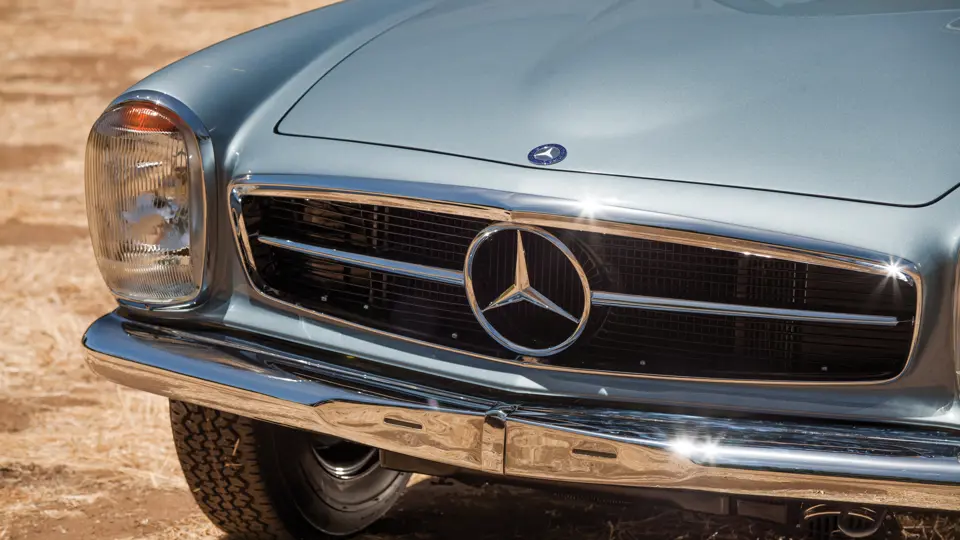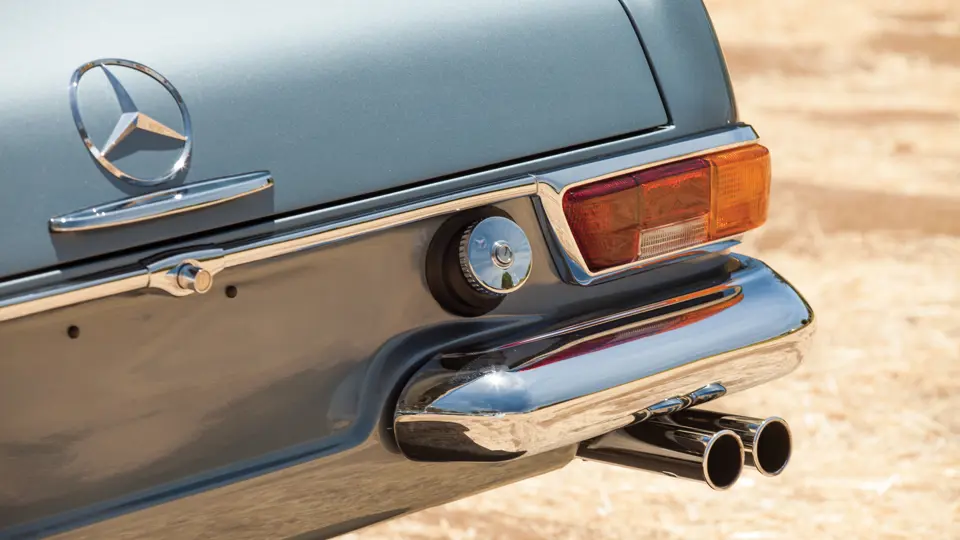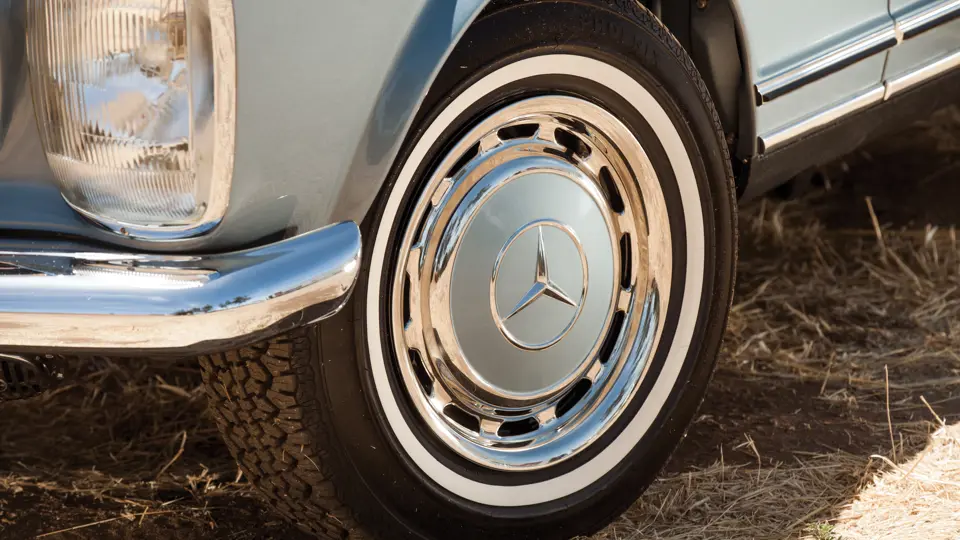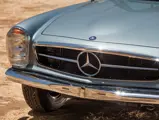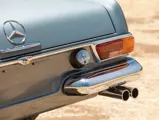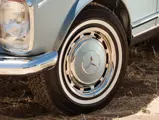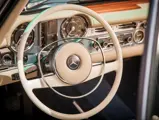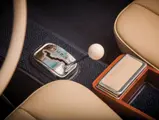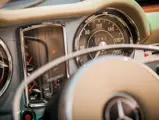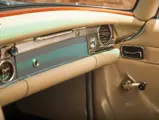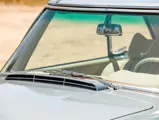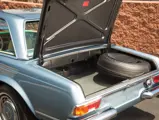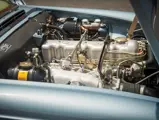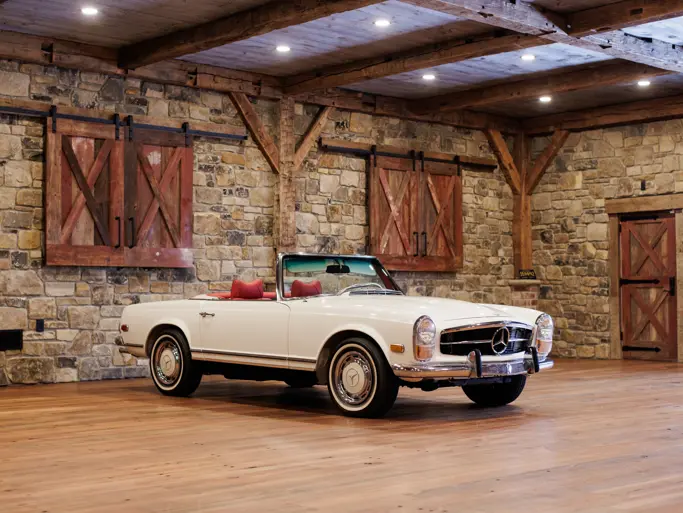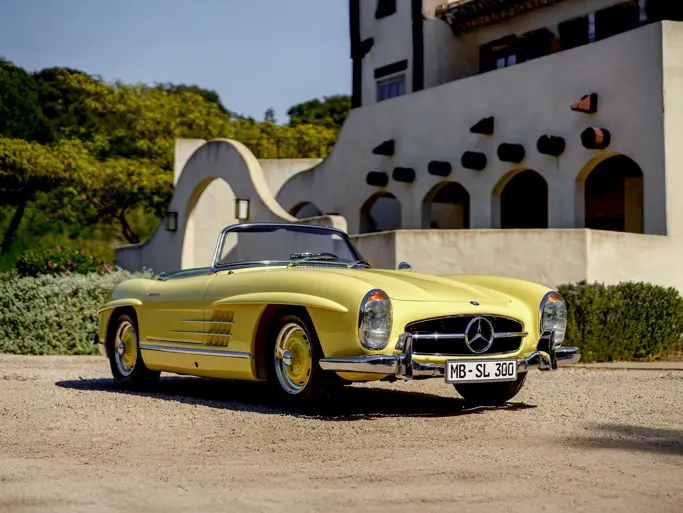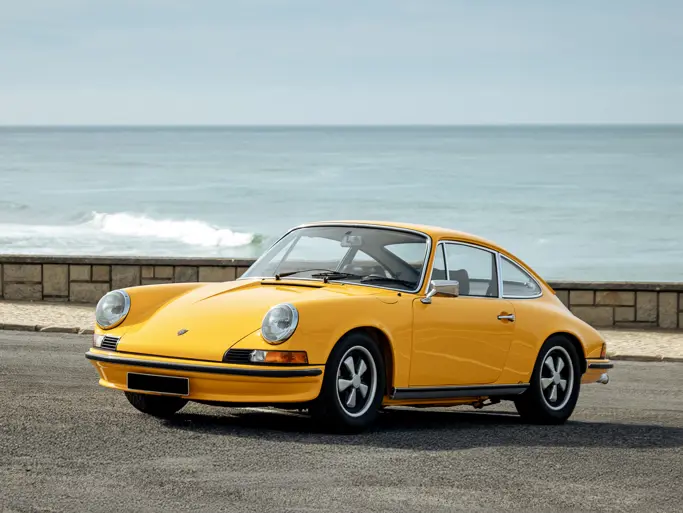180 hp, 2,778 cc OHC inline six-cylinder engine with Bosch mechanical fuel injection, four-speed automatic transmission, independent front suspension with twin transverse wishbones, coil springs, and an anti-roll bar, single-joint low-pivot swing axle rear suspension with coil springs, compensating springs, and gas-filled telescopic shock absorbers, and four-wheel disc brakes. Wheelbase: 94.5 in.
Contrary to popular belief, the W113 Mercedes-Benz SL introduced at the Geneva show in March 1963 was not a direct replacement for the outgoing 190 SL. This was an all-new, up-to-date sports touring car, albeit with 190 size and performance and an added level of luxury.
Like its forbearer, the 190 SL, it borrowed its chassis and running gear from a volume sedan, which in this case was the finned W111/112 that first appeared in 1959. Power was supplied by the overhead-cam six of the 220 SE, which had an increased displacement and was fitted with Bosch fuel injection. Similar to the 190 SL, its chassis was of monocoque construction and coil-and-wishbone front suspension. New was a low-pivot swing axle rear suspension, along with a transverse camber-compensating spring. Brakes were Girling front disc and Al-Fin rear drums with vacuum assist.
Dimensionally, it was almost a dead ringer for the 190 SL, as it only had 1.5 inches more in length. The additional weight of the stout structure for the new convertible was offset by the extra horsepower of the larger engine. This was also the first Mercedes-Benz to feature an automatic transmission on a sporting automobile and offer a simple fluid coupling instead of a torque converter.
Its styling was also fresh, although the big three-pointed star was carried over from previous models. Most interesting was the optional “pagoda” hardtop, so named for its upward curving sides, which offered an increased glass area and rigidity. Inside, the cockpit offered large, comfy reclining bucket seats and a typical Mercedes-Benz dash with a big round speedometer and tachometer. The 230 SL offered one of the industry’s first multi-purpose controls stalks for lights and wipers. Mercedes-Benz produced a total of 19,831 units before upgrading to 250 SL status, denoting a myriad of detail changes and a larger 2,496-cubic centimeter engine. After just 12 months and some 5,200 units, the Roadster was upgraded once again to 280 SL configuration, marking the introduction of the new M130 engine with 2,778 cubic centimeters and 180 horsepower.
The new 280 SL now included rear disc brakes as standard, an energy-absorbing steering column, and removable top latch handles for the windshield header. Its production spanned eight model years, with the final, and most popular, version producing 23,885 units from 1967 to 1971. Today, we value these Roadsters for their well-rounded drivability and their role in the evolution of Mercedes-Benz two-seaters.
This original Southern California-delivered car received a frame-off restoration in Germany. Its exterior is finished in its original color of Hellblau Metallic (DB 906), and it features a contrasting Parchment leather interior. It is perfect for touring, as it also features the four-speed automatic transmission, owner’s booklets, and tool kit, along with the removable signature pagoda hardtop and contrasting blue canvas top. Of course, during the restoration, the original engine was fully rebuilt, bringing the car to show standards.
Mercedes-Benz 280 SLs are long appreciated for their timeless style and excellent driving dynamics, and this example is both a valuable collector car and a very satisfying car to drive. Mercedes-Benz marketed these cars as “the sum total of everything the Mercedes-Benz engineers have learned about high-performance sporting machinery.” Now, four decades later, we could not agree more.
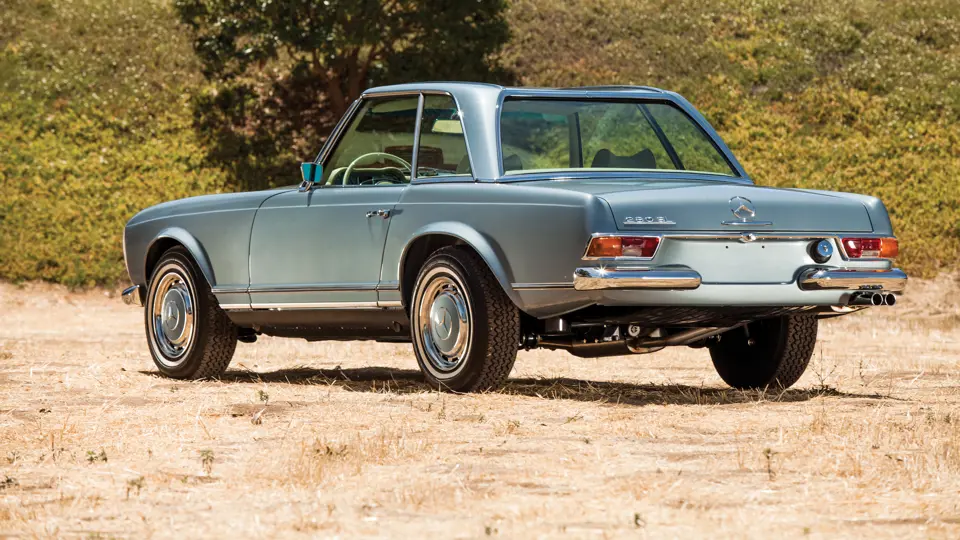
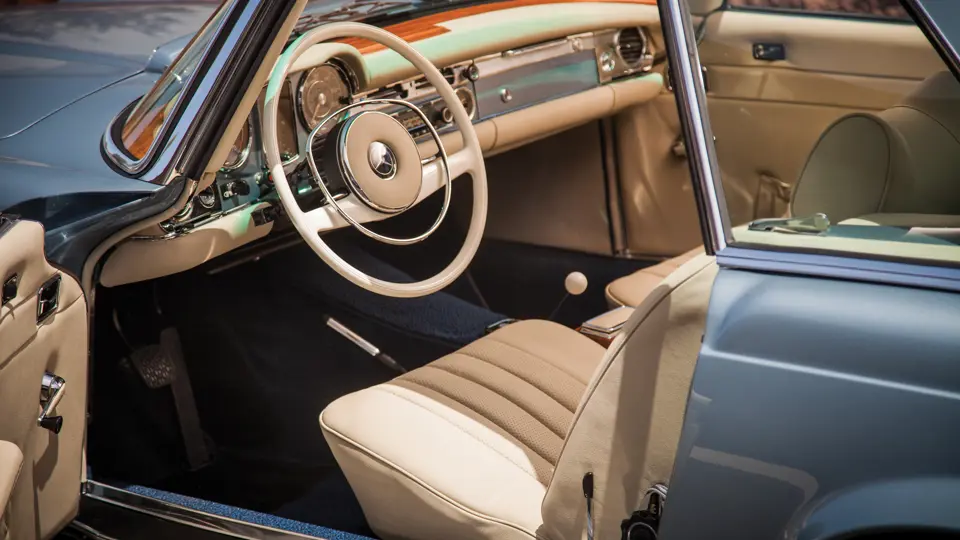


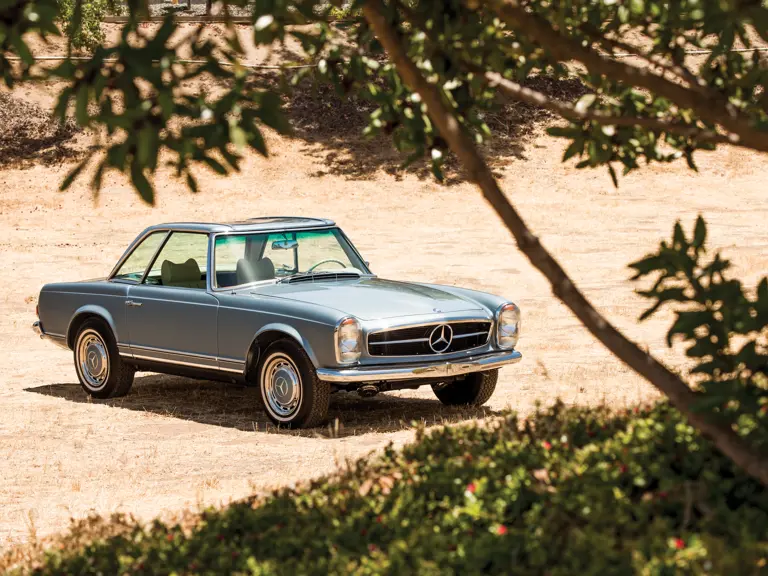
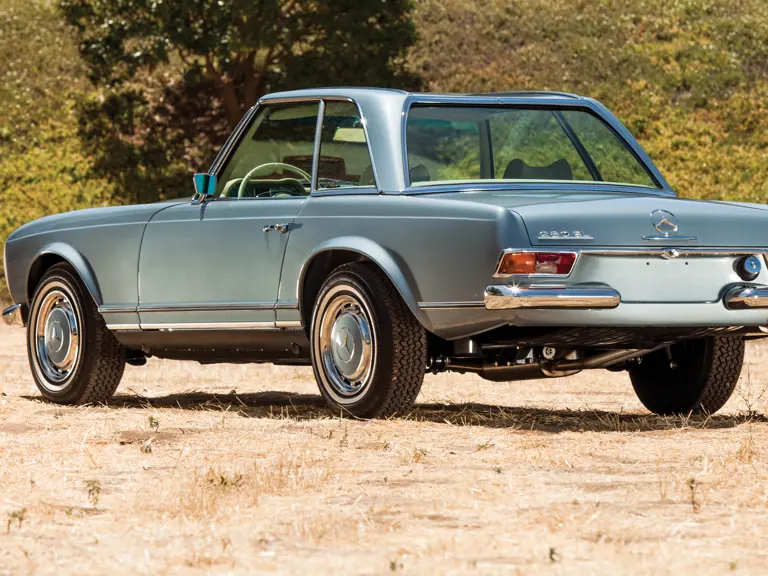
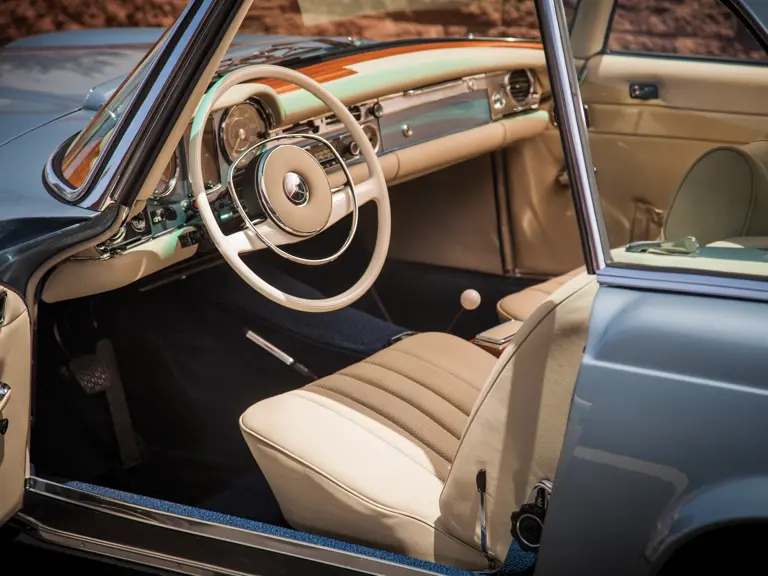
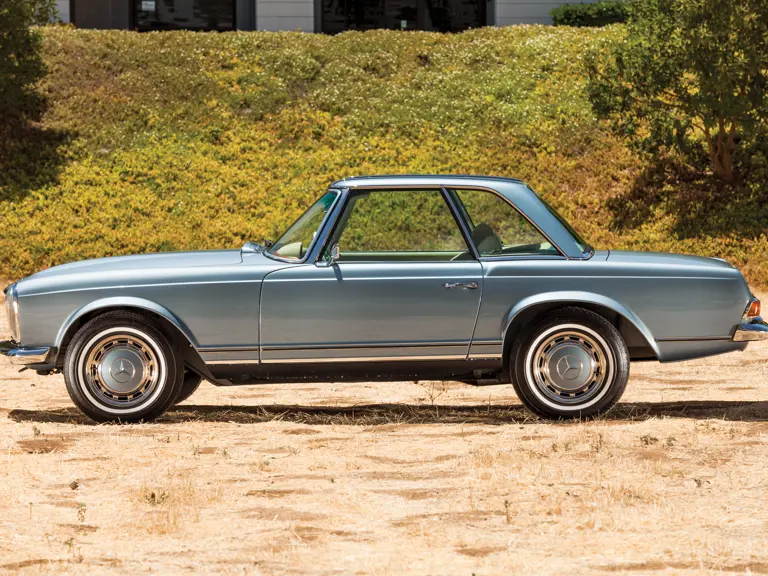
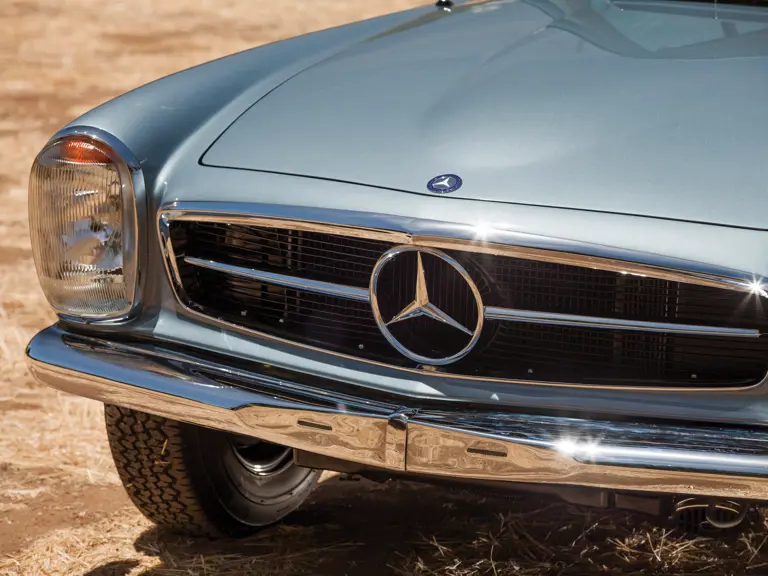
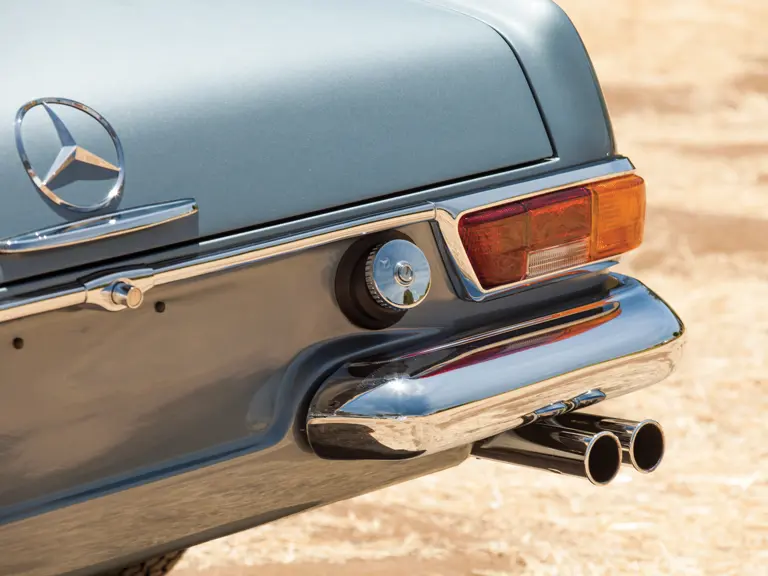
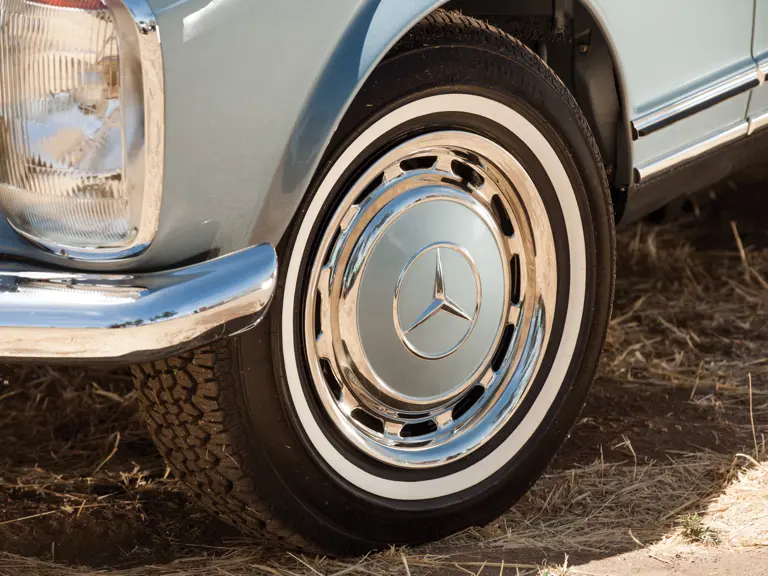
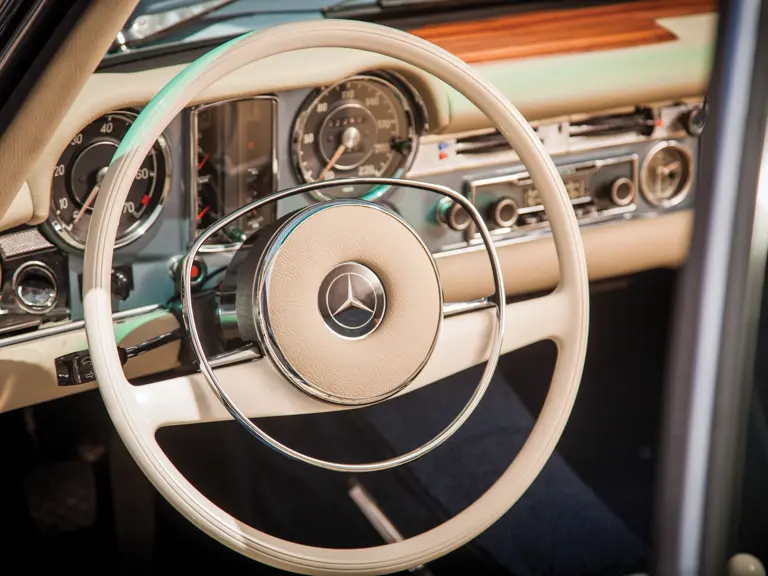
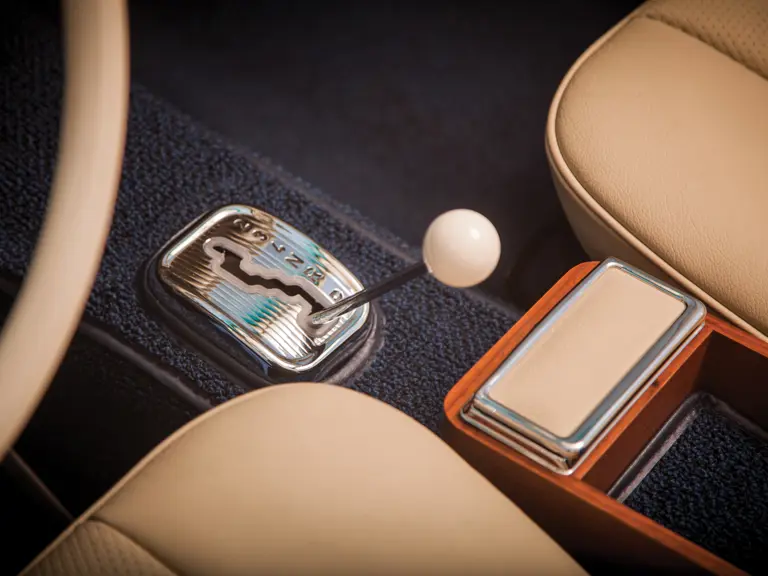
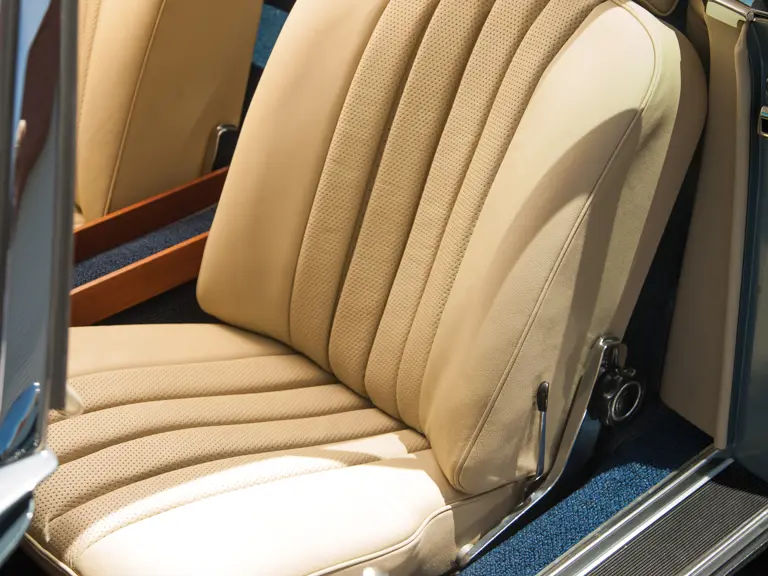
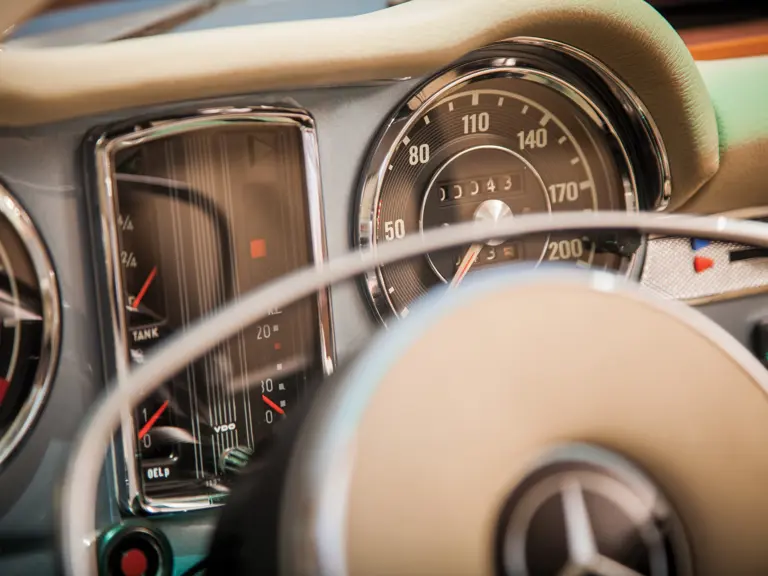
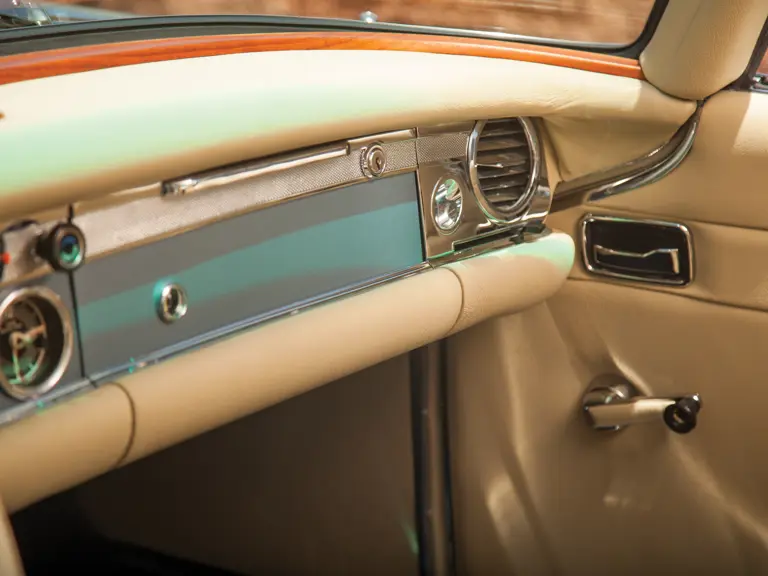
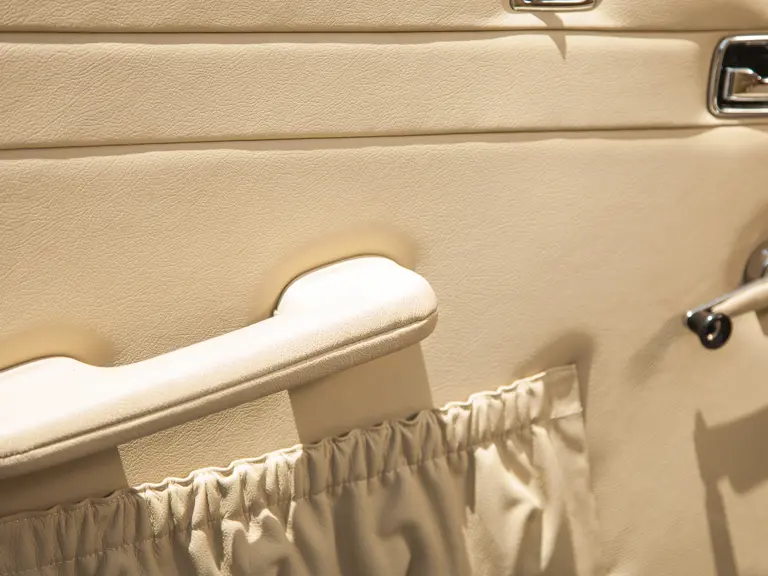
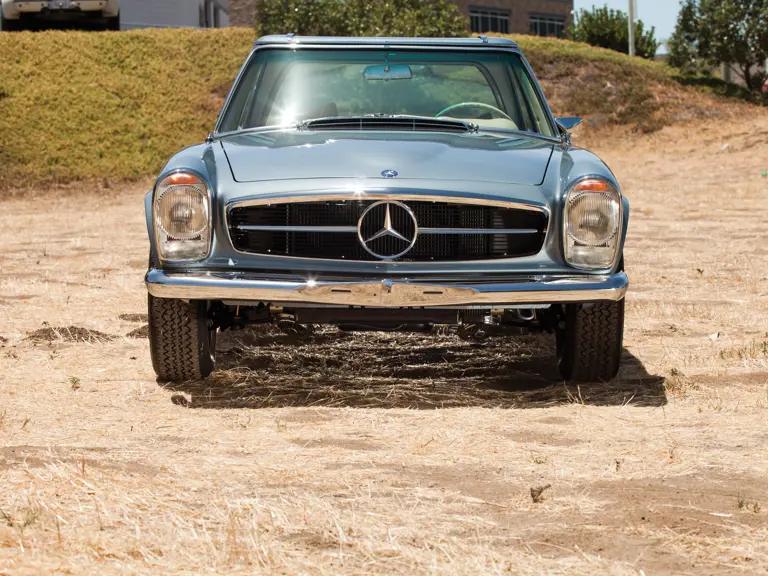
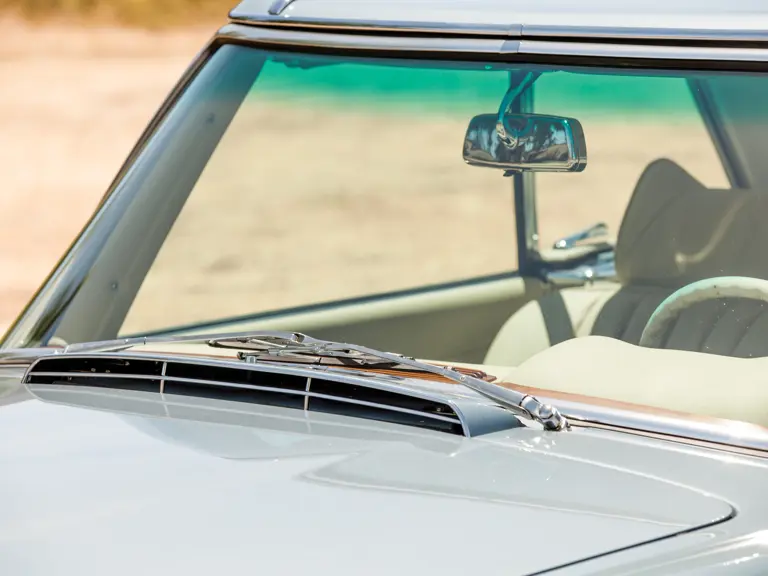
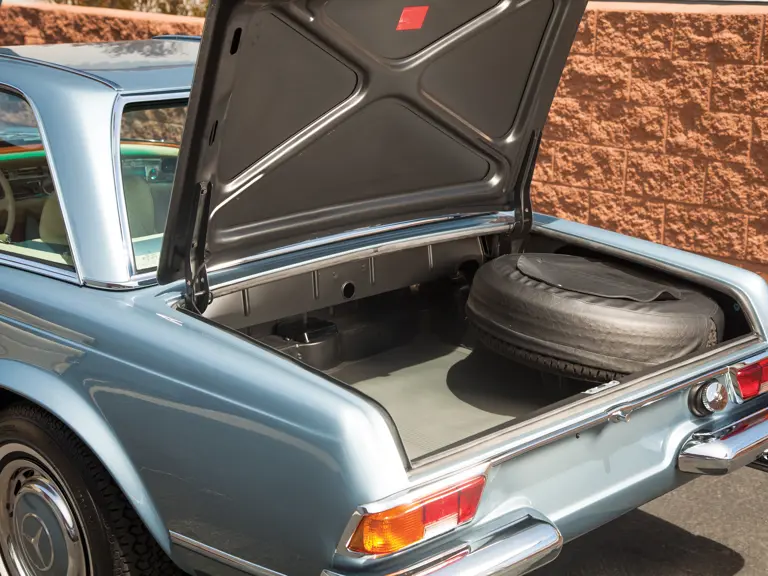
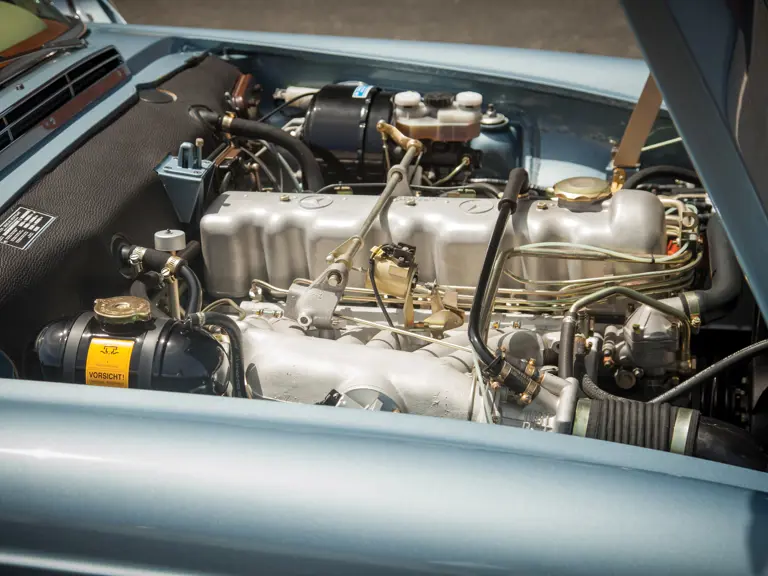
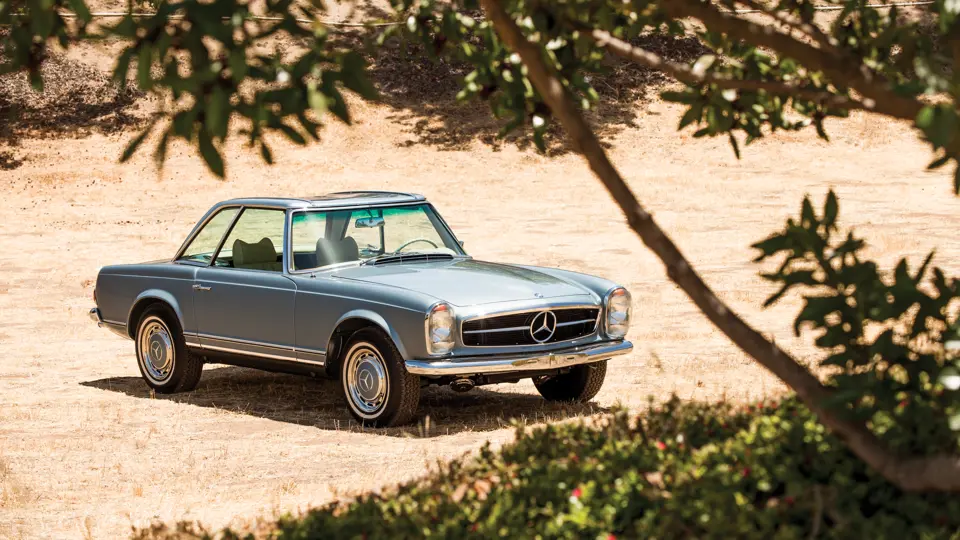
 | Monterey, California
| Monterey, California
